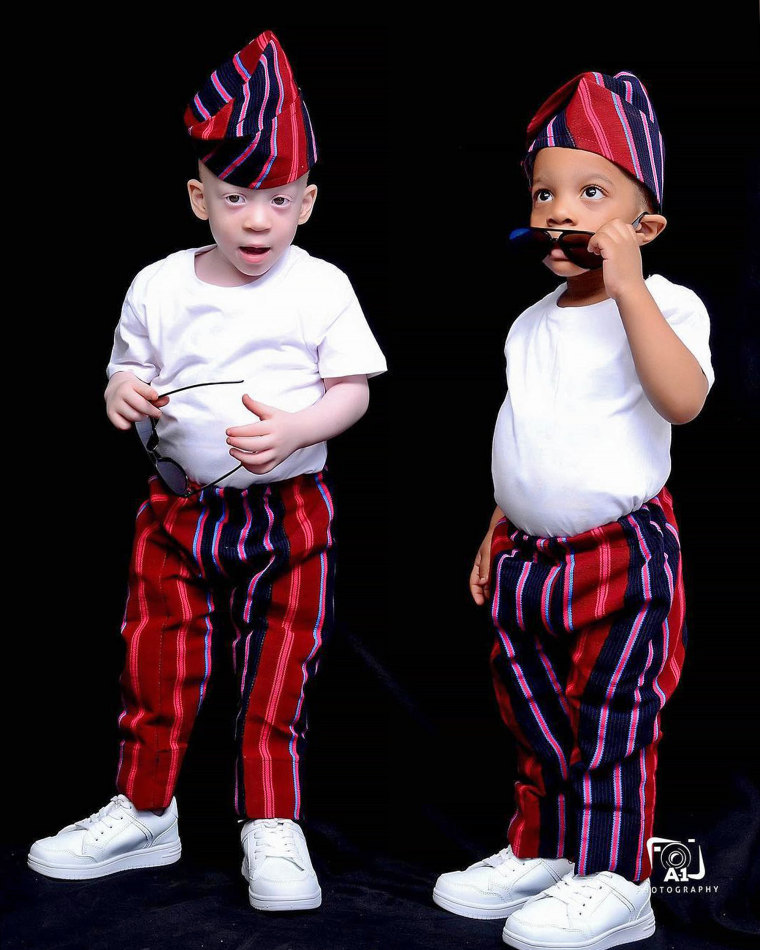Stacy Omirin got the surprise of her life when she gave birth to twin boys in February 2019.
Omirin knew she was carrying two babies — but she never imagined they would have different skin colors. Daniel has brown hair and brown skin like his mom and dad, while David has a head of golden blonde hair and a pale complexion, due to a rare genetic condition called albinism.
Albinism is a lack of pigmentation in the skin, hair and iris of the eye, according to the National Library of Medicine.
The brothers, who live in Nigeria, are now 3 years old and adorable, as evidenced by the photos and video their mother shares on Instagram. They also have a YouTube channel.
“They get a lot of attention when we’re out,” Omirin, 33, told TODAY Parents, noting that she dresses her sons in identical outfits. “People want to know are they friends? Are they brothers? When I explain that they’re twins, they say, ‘No, that’s not possible.’”
Omirin, a fashion designer, described Daniel — the twin with brown skin — as “inquisitive.” At the moment, he’s very interested in understanding how gadgets work. He’s also extremely tidy.
“If his shirt has a little stain, he’ll take it off,” she said. David, on the other hand, is more rough-and-tumble.
“David is friendly like Daniel, but he’s more mischievous,” Omirin shared.

Up to 20,000 cases of albinism are reported each year in the United States, according to Dr. Emma Guttman-Yassky, a dermatologist at Mount Sinai hospital in New York.
It can be diagnosed prenatally between 16 and 20 weeks of pregnancy.
"Many times albinism doesn't just affect the skin," Guttman-Yassky told TODAY. "The eyes are often affected as well — and a person with albinism will have problems with their vision. The ear canals can also be affected in rare cases."
According to the the Albino Foundation of Nigeria, people with albinism in the country often face high levels of discrimination and are treated as outcasts. In certain parts of Africa, such as Madagascar, attacks and mutilation have occurred because of the belief that body parts of a person with albinism bring wealth and good fortune.
“Sometimes there are comments about his albinism,” Omirin said. “Kids want to know why he’s white. But I am teaching him to be confident. He doesn’t care what other people think. He’s doing his own thing.”
Though albinism is often associated with light sensitivity and vision problems, Omirin said David can “see the tiniest of things.”
“For now, he has no limitations,” she said.
Related video:
